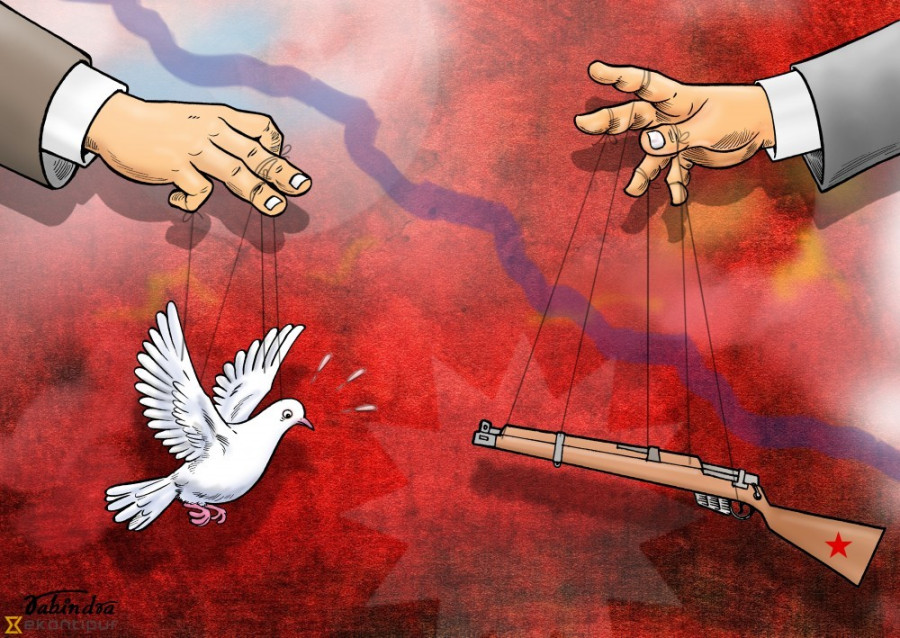National
State softens stance on transitional justice after pressure from victims and rights groups
National Human Rights Commission says it will recall its member from the recommendation committee if parties don’t correct their working style.
Binod Ghimire
Following pressure from victims and the human rights organisations, the government has backtracked from its decision to push through appointments to the two transitional justice bodies.
Last week’s attempt by the political parties to select new leadership for the Truth and Reconciliation Commission and the Commission of Investigation on Enforced Disappeared Persons by undercutting the recommendation committee drew widespread criticism from victims and human rights organisations. While human rights organisations had asked that transparency be maintained and due process followed in leadership selection, victims’ organisations had warned of rejecting the new leadership as the appointments were politically motivated.
Human rights defenders had argued that the politicisation could call into question the credibility of the transitional justice process. The National Human Rights Commission too threatened to recall its member from the recommendation committee if the parties were going to be so involved in the selection process.
[Read: Four international rights groups criticise government inaction on transitional justice]
Following these warnings, the tone of the government has changed. On Friday, Minister for Law and Justice Bhanu Bhakta Dhakal said that the transitional justice process will proceed by taking all concerned parties into confidence. The recommendation committee, led by former Chief Justice Om Prakash Mishra, is free to independently recommend names, Dhakal added.
“I want to assure the recommendation committee that it will not have any pressure from the government and the parties. The selection process will be fully transparent,” he said, addressing a programme held to mark International Day of the Disappeared. “Victims will be taken into confidence before any crucial decisions are made regarding the transitional justice process.”
Dhakal said that the amendment to the Enforced Disappearances Enquiry, Truth and Reconciliation Commission Act 2014 will be taken forward in tandem with the selection of the new leadership. The Act will be revised in line with the Supreme Court’s 2015 ruling, placing the concerns of conflict victims and international practices at heart. In February 2015, the Supreme Court had ruled that since the Act didn’t adhere to principles of transitional justice and international practices, it needed a revision.
Speaking at the same programme, Attorney General Agni Kharel said that they were aware of the pain victims are undergoing due to the delay in transitional justice and are committed to smoothen the process with the consent of all concerned parties.
“Both Dhakal and Kharel surprised us by their soft stands. We were happy to hear them say that no steps in the transitional justice process will be taken without the consent of victims,” Maina Karki, vice-chairperson of the Conflict Victims Common Platform, told the Post. “Now we want to see these commitments translated into action.”
Conflict victims have been demanding that the government ensure that the chairpersons and members of the two commissions are selected on merit and that a proper governing Act be put into place. Justice should be delivered through a credible transitional justice process, they’ve said.
“Thirteen years have passed since the transitional justice process began. Victims have gotten nothing except some monetary support,” said Ram Bhandari, advisor to the Conflict Victims Common Network, at another programme organised to mark disappearance day. “The first thing victims want to know is the whereabouts of their relatives.”
If the people in power think they will tire out the victims and ultimately silence them, then they are mistaken, said Bhandari. “We will continue to raise our voices until justice is delivered,” he said.
READ RELATED STORIES:
- Former child soldier files petition at UN Human Rights Office demanding justice




 18.12°C Kathmandu
18.12°C Kathmandu














